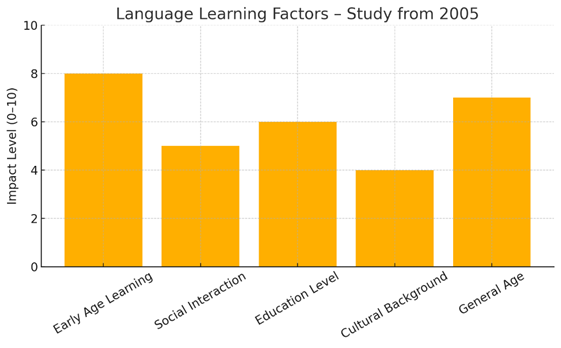e-TEP Yazma Bölümü Çıkmış Sorular




22 Mart 2025 Cumartesi günü girdiğim sınavda ölçülen yazma becerisi bölümünde ne tür sorular çıktığını ve bu sorulara nasıl cevap verilmesinin uygun olacağını yazacağım.
e-TEP yazma sınavı iki bölümden oluşuyor. e-TEP yazma ilk soru aynı konu üzerinde farklı düşünceleri okuyup, o bilgiler ışığında sizin görüşünüzü yazması olarak çıkıyor. Benim girdiğim sınavda aşağıda yazdığıma yakın bir soru geldi:
The Mayor of London's Action:
The Mayor of London has launched a program to provide free meals to children from low-income families. This initiative aims to support students who might otherwise struggle to access regular, nutritious food. The mayor believes this is a practical way to tackle child poverty and promote equality in education.
Jenny's Opinion:
Jenny disagrees with this approach. She argues that instead of treating the symptoms of poverty, the UK government should adopt long-term policies to eliminate poverty at its root. In her view, handing out food is only a temporary fix that doesn't solve the real problem.
Your Task:
Do you agree more with the Mayor or with Jenny? Give reasons for your opinion. Write 130 words.
Örnek yanıt:
I understand both points of view, but I agree more with the Mayor. While long-term solutions to poverty are important, children need help right now. If they come to school hungry, they can’t concentrate or learn properly. Providing food supports their health and education immediately. Of course, I agree with Jenny that the government should work on reducing poverty through strong policies, but those changes take time. In the meantime, children should not suffer. A combination of both short-term support and long-term strategies would be the most effective approach. The mayor’s program may not end poverty, but it helps protect the most vulnerable while bigger solutions are being developed. Therefore, I think his actions are necessary and compassionate.
e-TEP yazma ikinci soruda ise bir grafik gösteriliyor ve o grafikle ilgili bir kayıt dinletiliyor. Kaydı dinlerken not alabiliyorsunuz. Ardından dinlediğiniz kayıt ve önünüzdeki grafikte yazan bilgileri karşılaştırmanız isteniyor. Benim girdiğim sınavda aşağıdakine benzer bir soru geldi:
Grafik

Kayıt:
Recent research conducted in the last few years has explored the key factors that influence how people learn a new language. The study focused on variables such as social life, age of exposure, education level, age in general, and cultural background.
One major finding was the importance of early exposure. People who started learning a language before the age of seven showed stronger listening and speaking skills later in life. However, motivation and environment remained just as crucial.
The study also highlighted the role of social life. Learners who regularly interacted with native speakers or lived in multilingual environments made faster progress. In contrast, those who studied in isolation or only in classrooms advanced more slowly.
Interestingly, education level had a clear impact too. Participants with higher education levels tended to perform better in grammar and writing tasks. This was linked to stronger cognitive strategies and learning habits.
Another key factor was the learner’s cultural or national background. People from countries with strong English exposure—such as through media or education—had a noticeable advantage. Yet, those who actively created opportunities to practice still managed to catch up.
Lastly, age still mattered. Although younger learners generally learned pronunciation more easily, older learners were more efficient in understanding grammar rules and using learning strategies effectively.
In conclusion, while early learning helps, a mix of social interaction, motivation, and educational support seems to be the winning combination.
Task: A recent lecture emphasized the role of social interaction and motivation in language learning, while an older study from 2005 (see graph) highlighted early age and general age as key factors.
What are the main differences between the lecture and the graph, and which view do you agree with more? Explain your answer with reasons and examples.
Örnek Cevap:
The lecture and the graph present two very different perspectives on what influences language learning. The 2005 study shown in the graph emphasizes early age learning and general age as the most important factors. It suggests that the younger a person is when they start learning a language, the more successful they will be. According to this older view, early exposure helps learners pick up pronunciation naturally and develop fluency without much effort. Age, in general, was seen as a limiting factor, with adults believed to face more difficulty in language acquisition.
In contrast, the recent lecture focuses more on environmental and motivational factors. It highlights the role of social interaction, cultural exposure, and personal motivation. The speaker argues that learners who are actively engaged in real-life communication, especially with native speakers, tend to progress faster. The lecture also mentions that people living in multilingual environments or those who regularly watch media in the target language often perform better, even if they started learning later in life.
The key difference between the two perspectives is that the graph gives more weight to biological and developmental factors, while the lecture values context and attitude. Personally, I find the lecture’s view more convincing. Although starting young has clear advantages, it doesn’t guarantee success. Many adults learn languages effectively if they are motivated and have access to the right environment.
Moreover, today’s world offers more opportunities to immerse oneself in a language through technology, travel, and online communities. This makes the role of social and cultural factors even more significant. In conclusion, while early learning is helpful, I believe the social and motivational environment plays a bigger role in achieving real fluency.